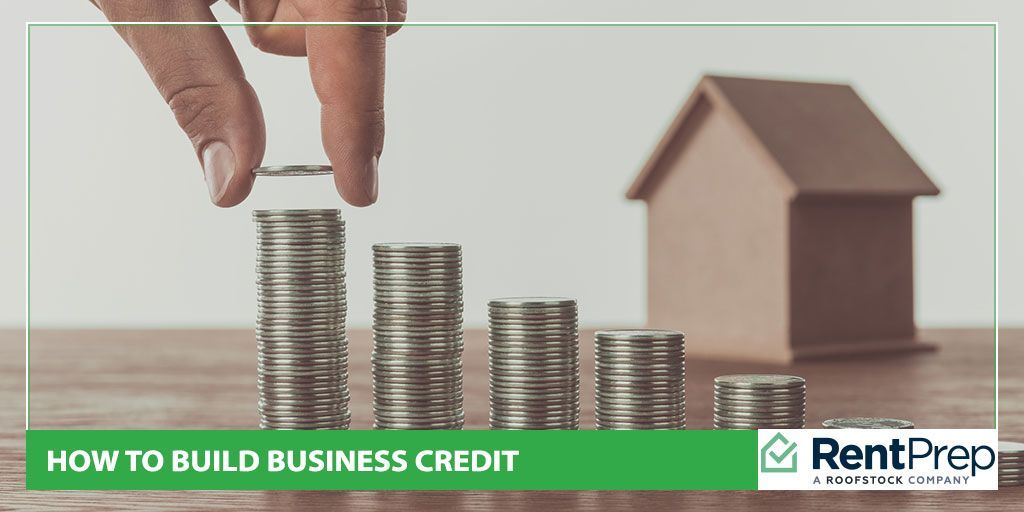
If you want to take out loans and find lines of credit for your real estate business, your business needs to be considered creditworthy. A strong business credit score will make you look more attractive to banks offering loans and mortgages and more viable to other businesses that you might want to work with.
But how do you build a good business credit score from scratch when you are at the start of your business journey? It is a good idea to establish your business credit early on in the process as, in many cases, you must have been established for at least two years to be eligible for lines of credit.
So, how do you go from zero to 100 (or more likely a healthy 80) when building your business credit score? This article will take you through how to get started, and how to use credit cards, loans, and lines of credit to your advantage to establish your financial stability.
A Table Of Contents On How To Build Business Credit
Do you know how to build your business credit? Below is a list of the relevant topics that you can expect to see covered in this article.
- Separate Your Business And Personal Finances
- Track Your Business Credit Score
- Build Your Business Credit Score
- FAQs
- Business Credit Score For Real Estate
Separate Your Business And Personal Finances

When starting out, many landlords manage their rental properties through their personal finances. That may be fine when you are renting out just one or even two other properties.
But as you grow your portfolio of properties, your risk also grows. Separating your personal and business finances will protect your personal assets, such as your home, from financial hardship caused by drops in property value, extended vacancies, and so on. Establishing a business can also open up new lines of financing that you just can’t access as an individual.
You should speak to a business and financial advisor to determine what sort of small business setup will best suit your investment strategy. You might start a Limited Liability Company (LLC), Corporation, Limited Partnership, Trust, or Sole Proprietorship.
Whatever form you choose, your small business will need its own name, phone number, and bank account. You should also immediately start separating your business and personal finances. Tenants should be depositing their rent checks into your business account, which should also be used to pay all business expenses. Read our guide to tax deductions related to real estate business costs.
Your business will also need a federal tax identification number, known as an EIN, which can be applied for online.
When you are in the early stages of developing your real estate business, for example buying your first or second rental property, you might think it’s too soon to create your own business. But remember, many lenders will only work with businesses once they have been established for at least two years. So, start earlier than you may think you need to.
Track Your Business Credit Score
Just as you also have a personal credit score, your business will have a credit score. This is incredibly important. Just as you wouldn’t rent to a tenant without first screening their credit, banks and other businesses will check your business credit score before working with you.
There are three major business credit bureaus in the United States: Dun & Bradstreet, Experian, and Equifax. Each uses slightly different metrics to determine their scores. While you should be registered with the second two when you register your business, you need to register separately online with Dun & Bradstreet for a DUNS number.
Credit bureaus award credit scores between 0 and 100, and anything above 80 is considered excellent. But when you register your business, you won’t start with an excellent credit score. This is something that you will have to work to build. Although there is a small fee attached, it’s recommended that you check your business credit score twice a year to identify any problems that need addressing.
Build Your Business Credit Score
There are a variety of things that you can do to build your business credit score swiftly.
#1 Get A Business Credit Card

The first thing you should do is get a credit card in the name of your business. The bank will use your personal credit score to determine your eligibility and credit limit. When choosing the right credit card for your business, ensure that it is one that reports to the business credit bureaus, because not all of them do.
While some people go all out and get a large number of credit cards to start growing their score quickly, about five cards is probably the right number for a small business that you want to grow.
Just having the credit cards is not enough, though; you also need to use them to make purchases. But make sure that you make your regular monthly payments on time, and try to keep your tidal credit balance at below 30% of the credit available to you, rising to a maximum of 50% when making a significant purchase.
It is important to be consistent with your credit cards over time as the business credit bureaus look over your usage for the last 24 months.
#2 Set Up Trade Lines
Another way to start building your credit score is to set up trade lines with your suppliers that allow you to pay for goods and services 15, 30, 60, or 90 days after you have received them. When you pay these bills on time – or better, early – this improves your credit score.
Credit bureaus only award perfect Paydex scores to those who pay early, so make sure you do.
Again, check that your supplier reports to the main credit bureaus. Many of the major suppliers of things like office supplies do. If you work with more niche companies, you may need to register your tradeline information with the bureaus independently.
#3 Look For Small Loans
If you are a new business, you are only likely to be eligible for small loans. But it can be useful to get small loans for things like property repair and upgrades, even if you have the funds available. If you take out a loan and pay it off successfully, the next time you apply for a loan you will be eligible for a higher amount.
Again, make sure that you’re borrowing from lenders that report to the credit bureaus. Most big banks will, but it can be challenging to get your first loan. You can also look at online lenders such as OnDeck, LendingClub, Funding Circle, and Bluevine, all of which report.
It’s worth remembering that most traditional mortgage lenders won’t accept borrowed funds for a property deposit, but there are other forms of property financing that will accept loan money as a downpayment.
#4 Manage Your Debts
Once you have debts to be paying off, how you manage and pay them can make a difference to the quality of your credit score. You also might want to behave differently depending on what kind of financing you are looking for.
For example, if you’re looking for your next mortgage, banks are unlikely to lend to you if you already have two open property loans on your credit report. If you can finalize one of those before taking out your next mortgage, you will have a better chance.
But if you suddenly pay off a big debt, like a property loan, your credit score will automatically drop. While this seems counterintuitive, paying off a big loan can make you seem less financially sound. Therefore, if you are still building your credit score and you have a chance to pay off a big property debt, you might be better off spreading your funds around and paying down other debts, or even using that bundle of money as the deposit for your next property investment.
Whatever you are doing, make sure you keep your information up to date with the business credit bureaus so that you can benefit from your actions, and check your score regularly to ensure that your actions are having the desired effect.
FAQs: How To Build Business Credit
Learn more with these answers to some of the most frequently asked questions about building your business credit for real estate and property investment.
What is the fastest way to build business credit?
For most people, the fastest way to build business credit will be opening a small number of business credit card accounts, between two and five. Use these to make all your business purchases and then pay your monthly bill before the due date to show your financial stability. The secret to maximizing the benefit to your business credit score is to consistently keep your credit card debt to less than 30% of the funds available to you.
How do I build new business credit?
Once you have your business set up, you need to put your business in debt and then pay it off ahead of time to show that you are financially stable. You can do this with credit cards, loans, and even trade lines with your suppliers that allow you to pay what is owed at least 30 days after receipt. Always check to be sure the businesses that are extending credit to you report to the major business credit bureaus so that you can benefit from the transactions.
How do you repair bad business credit?
Repairing bad business credit is the same as establishing new business credit. You need to accumulate reasonable amounts of debt and pay it off on time, or ahead of time. It can take longer to rebuild bad credit than establish new credit. When rebuilding, it can be useful to check your credit reports regularly to ensure their accuracy, and see which of your actions are having the biggest impact on your credit. It is good practice to check your business credit score twice a year.
Can you build business credit in two months?
It is not possible to build business credit for a business within two months. It can take just that long for new accounts to show up on your business credit report, and then you need several months of good payments to establish your business worthiness. Even if you have a decent score, many companies will not lend to such young businesses, and usually require that you have been established for at least two years.
What is a good business credit score?
Generally speaking, anything between 80 and 100 is considered a good credit score and will get you approved for most lines of credit. Above 50 is still considered a fair score and will enable you to do business. Anything 49 and below is considered a bad credit score for a business.
Business Credit Score For Real Estate
A good business credit score can be a major advantage when investing in real estate and rental properties. It might make your next mortgage or business loan that much easier to get and on more favorable terms. If you want to grow your real estate business, it is an essential piece of the puzzle.
Building your business credit score works on a simple principle. Go into reasonable amounts of debt and pay that debt off on time or early. You can do this with credit cards, loans, and lines of credit.
It can be a slow process when starting a new business, so it is a good idea to establish your business and start spending early on in your venture rather than waiting until you need it. You will be much more attractive to potential lenders and partners with 24 months of credit history rather than just six.

